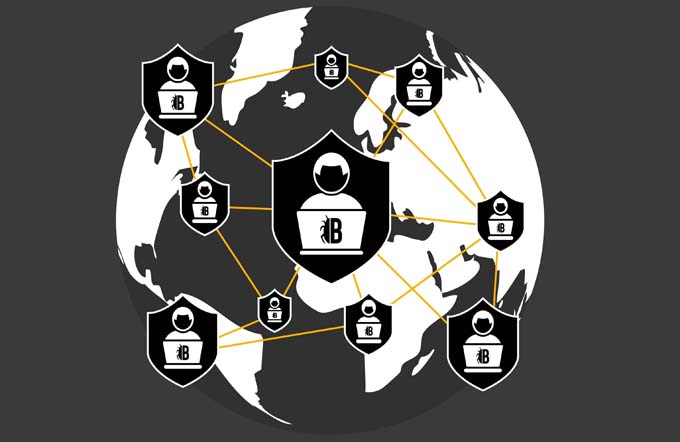Deloitte survey: Swiss economy needs to dress warmer
The 35th edition of Deloitte's well-known bi-annual CFO survey reveals new trends: For the first time in more than three years, the economic outlook of Swiss CFOs is declining. These signs must also give pause for thought in an international context.

The CFO survey by Deloitte assumes that international tensions are looming, and also shows respect for the appreciation of the Swiss franc. Various reasons for this were surveyed. Economic sentiment among Swiss CFOs is clouding over for the first time in over three years.
Cloudy signs
Still, 77 percent of the more than 100 CFOs surveyed in this country are positive about the economy's growth. This represents an 8 percentage point drop from the first half of 2018. Caution is warranted. After the last three similar swings in sentiment, things have gone downhill twice.
The fact that CFOs' optimism about their own company's financial prospects has shrunk significantly over the past three months also shows that the peak in growth seems to have passed. The net balance (optimistic minus pessimistic mentions) has fallen from 24 percent to a low but still positive 9 percent.
"The Swiss economy is still robust, but the big boom is over. The ongoing international trade disputes are also rubbing off on Switzerland for the first time. The protectionist posturing emanating in particular from the two major powers, the USA and China, is fuelling uncertainty among our export-oriented companies," comments Michael Grampp, Chief Economist at Deloitte Switzerland, on the results of the CFO survey.
Trading partners increasingly signal unreliability
Overall, only 40 percent of CFOs rate the level of economic and financial uncertainty in Germany as high. This is an optimistic result. However, most of the perceived uncertainties lie abroad. Just under half of export-oriented Swiss companies (48%) see major uncertainties ahead.
Political uncertainties among traditional trading partners are increasing and are perceived by CFOs as a major challenge for their own companies. Compared to the first half of the year, risk perceptions against established partners the US (up 26% to 77%), Italy (up 20% to 64%) and China (up 15% to 30%) are rising dramatically in the current six months. Unsurprisingly, the Brexit-plagued UK is also rated as a risky trading partner by a high 64 percent of CFOs.
Relations with the two traditionally most important partners, Germany (11%) and France (7%), are viewed more positively. For both, the level of uncertainty has decreased compared to the first half of the year.
The external perception of France is simultaneously reflected in the risk appetite of French CFOs. Deloitte's European CFO survey shows that the French are the most willing to take higher risks on the balance sheet. 45 percent see now as a good time. The surprising result also puts President Emmanuel Macron's economic program in a good light - at least temporarily. The second most risk-averse country behind France is surprisingly Switzerland (39%).
"Geopolitical uncertainties and protectionism are very relevant in the risk perception of Swiss CFOs, but internal company processes are at the top of the list: Potential home-grown problems are the top risk for the first time. Many companies are currently very preoccupied with themselves and are not focusing with full vigour on external challenges. This is exactly what is needed," says Alessandro Miolo, Partner CFO Program Manager at Deloitte, analyzing the field of tension in which CFOs are currently operating.
Contain exchange rate risks
In view of the challenging international business, the CHF/EUR exchange rate is a particular focus for Swiss companies. For almost 60 percent of the CFOs surveyed, a stronger franc would have a direct negative impact on their company. As an average, the CFOs surveyed state an exchange rate of EUR/CHF of 1.07 as the pain threshold.
Alessandro Miolo classifies this result: "After the abolition of the minimum exchange rate in January 2015 and the initial shock, companies have come to terms with the exchange rate situation. But the CHF/EUR exchange rate now hangs over companies like a sword of Damocles. It is surprising that only slightly more than half of Swiss CFOs limit the exchange rate risk by means of risk assessments or financial hedging. There is no room for inaction on this issue."
Shortage of skilled workers keeps us on our toes
Despite a declining trend in the positive outlook, companies across Europe remain spending-friendly in terms of both investment and hiring. 39% of Swiss CFOs still expect investments to increase in the 12-month outlook. This is exactly in line with the European average. In Turkey and the UK, on the other hand, investment expectations have slumped, as the political uncertainties there are too great.
42 percent of Swiss CFOs are confident that they will increase the number of employees in the next 12 months. However, they see access to qualified personnel as a growing risk. These concerns are shared almost without exception by CFOs in other European countries. In the case of our neighbours Germany and Austria, the shortage of skilled staff is even the most frequently cited risk.
Also against the background of the Swiss priority for Swiss nationals, it is quite possible that the "war for talent" within the German-speaking countries will continue to increase. People with appropriate technical knowledge and professional experience are particularly sought after.
"The demographic trend, which is leading to an ageing population, and technological change will exacerbate the shortage of skilled workers in the long term. The fact that only 20% are planning recruitment measures that focus on other groups of workers, such as those re-entering the workforce or older workers, is a strategic mistake," says Michael Grampp about the measures mentioned by the CFOs to combat the shortage of workers.
More information about the biannual Deloitte CFO Survey can be found on the Deloitte website.









